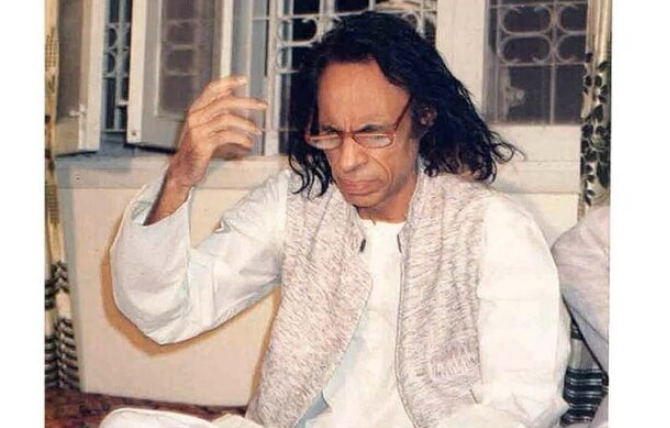Karachi (Web Desk): The 22nd death anniversary of Renowned Urdu poet and scholar Jaun Elia is being observed today (Friday).
Born Syed Sibt-e-Asghar Naqvi on December 14, 1931, in the culturally rich town of Amroha, Uttar Pradesh, Jaun Elia emerged from a family steeped in artistic and literary traditions.
The youngest of his siblings, he was raised amidst the luminaries of Urdu poetry, with his elder brother, Rais Amrohvi, himself a renowned poet.
Jaun’s father, Allama Shafiq Hasan Elia, was a man of many facets—an astrologer, a poet, and a scholar deeply immersed in the arts and literature.
It was in this intellectual and artistic atmosphere that the young Jaun’s poetic sensibilities were nurtured.
His early immersion in the world of words bore fruit at an astonishing age, as he composed his first couplet in Urdu when he was barely eight years old.
Fluent in an array of languages—Arabic, English, Persian, Sanskrit, and Hebrew—Jaun Elia's intellectual breadth was as vast as his poetic vision. In 1957, he migrated to Pakistan, making Karachi his home, where his literary journey took root and flourished.
It was only in 1991, at the age of 60, that Jaun’s first poetic compilation, Shayad ("Perhaps"), saw the light of day, marking a late yet significant entry into the world of published poetry.
The collection, filled with the depth and nuances of his inner world, established him as a force to be reckoned with in the realm of Urdu literature. His second anthology, Ya’ani ("That Is"), was published posthumously in 2003, a year after his passing.
The poet's legacy continued to unfold after his death on November 8, 2002.
His close companion, Khalid Ansari, took on the task of preserving his poetic genius, compiling and publishing three subsequent collections: Gumaan ("Doubt") in 2004, Lekin ("But") in 2006, and Goya ("As If") in 2008.
These works, rich in their philosophical musings and introspective melancholy, further cemented Jaun Elia’s place in the pantheon of great Urdu poets.
Jaun Elia’s poetry is celebrated for its raw emotional depth, existential ponderings, and its unflinching exploration of love, loss, and the human condition.
His unique voice, defined by its intellectual rigor and profound lyricism, continues to inspire poets, writers, and readers alike, ensuring that his legacy endures beyond time and space.


